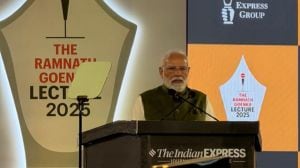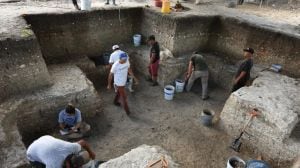US to drop N-plants from entities list
Even as Prime Minister Manmohan Singh tackles the Opposition in Parliament over the nuclear understanding with the US, Washington is already...

Even as Prime Minister Manmohan Singh tackles the Opposition in Parliament over the nuclear understanding with the US, Washington is already translating intent into action. Barely weeks after Singh’s visit, US has decided to remove Tarapur and Rajasthan atomic power stations from its entities list.
This will open up the doors for US companies to freely trade on a range of items and material at both these plants. Earlier, this trade was difficult because being under the entities list of the US Department of Commerce meant several rounds of screening and review which discouraged companies.
At present, Tarapur Atomic Power Station (TAPS) 1 & 2 as well as Rajasthan Atomic Power Station 1 & 2 (RAPS) are on the entities list. While removal from the list is not linked with the issue of fuel supply for the reactor, sources said, it clears the way for trade in any item that is needed outside the reactor.
It’s learnt that the decision has already been taken and in a matter of days these will be removed from the entities list. Along with this, Washington has already assured that three ISRO units—ISRO Telemetry, Tracking and Command, ISRO Inertial Systems Unit in Bangalore and the Space Application Centre in Ahmedabad—will also be removed from the list.
The decision will be of particular help to Tarapur which was set up in 1969 with US help. It has two 160 MW reactors and the General Electric Company of the US played an important role in getting it off the ground. US companies can once again get involved in the project as India looks to nuclear power being a major source of energy in the days ahead.
|
N-pact cleared by
AEC: PM |
||
|
• NEW DELHI: PM Manmohan Singh today rejected the Opposition charge in Parliament that he had compromised the country’s autonomy while managing its strategic nuclear programme. Singh told Lok Sabha that he had signed the Indo-US joint statement only after it was cleared by Atomic Energy Commission (AEC) chairman, Anil Kakodkar. |
||
That both TAPS (1&2) and RAPS (1&2) are already subject to safeguards of the International Atomic Energy Agency, sources said, made it easier for Washington to act almost immediately after the Prime Minister’s visit to the US. Also, they pointed out that the speed with which the US has moved is encouraging given the larger commitment US President George W Bush has made towards productive cooperation in civilian nuclear energy with India.
In the joint statement issued during Singh’s visit, the two sides had agreed to a range of steps in achieving this goal. One of which was that Washington will work with other members of the Nuclear Suppliers Group on the expeditious supply of fuel for the Tarapur reactors.
The decision to remove these sites from the entities list augers well for the efforts to be made in the future. For the moment, the US Congress is in recess and Bush is away on a vacation but diplomats feel that momentum has been set and soon hectic rounds of official-level negotiations will begin in the run-up to the US President’s proposed India visit early next year.





- 01
- 02
- 03
- 04
- 05


























